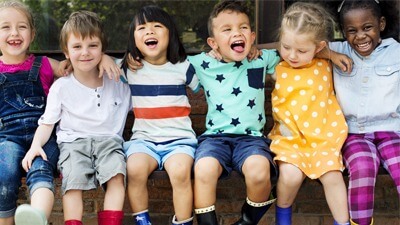 An interdisciplinary team from NIU was recently awarded two grants to study the impact of early childhood education programs in the state of Illinois.
An interdisciplinary team from NIU was recently awarded two grants to study the impact of early childhood education programs in the state of Illinois.
The research team for both grants includes faculty and staff from the NIU Division of Outreach, Engagement and Regional Development, the College of Education, and the College of Health and Human Sciences. The team members, who are experts on data management and analysis, early childhood education, educational program evaluation, and quantitative and qualitative research methods, are pooling their expertise to offer a comprehensive picture of how early childhood programs impact students, families and communities in the state.
Amy Jo Clemens, director of the NIU Center for P-20 Engagement and the lead investigator on the grants, says, “NIU has a remarkable pool of experts available to collaborate on these projects. Benjamin Creed and Kelly Summers of the College of Education and Thomas Pavkov of the College of Health and Human Sciences bring knowledge of education research, program evaluation and early childhood education, while Charlie Rosemond of Education Systems Center, and Mindy Schneiderman and Brian Richard of the Center for Governmental Studies are experienced with the survey methods and data sets needed for these projects.”
This fall, the team will also add a full-time, post-doctoral research scientist to the team. Youngran Kim has a Master’s degree in educational psychology from UNC Chapel Hill and a Ph.D. degree in educational policy from Michigan State University. Her background and expertise in econometric methods dovetail nicely with rest of the team.
Summers states, “It’s exciting to work with an interdisciplinary team of experts on both of these grants. We each bring our own content knowledge and methodological knowledge to these projects. Collectively, we have a robust skill set we are drawing from to answer complex policy questions. I’m looking forward to sharing the knowledge we gain from our research not only with stakeholders from the State of Illinois but also with broader audiences. As a former school psychologist and public school administrator, it is so meaningful to be working on projects that truly can positively impact the lives of children.”
Richard adds, “Because the team includes experts in both early childhood education and data analytics, we have identified key research questions important for decision making in early childhood programming and then found the right analytical tools to answer those questions.”
The first of the team’s two projects will study Illinois’ return on investment for early childhood education, examining both early childhood programming offered in K-12 schools through the state board of education as well programs supported by the Illinois Department of Human Services.
“This project is the first big test of Illinois’ new longitudinal data system, which links many data sets to allow researchers to track the impacts of early childhood education on a person’s school, career and outcomes later in life,” says Clemens. “The goal is to create a cost-benefit analysis that says, ‘With this type of investment, you’ll get this type of outcome.’”
“Given the state’s focus on early childhood programs, this work will make a timely contribution to the ongoing state- and local-level policy conversations,” says Creed.
He continues, “It’s really motivating to our team that stakeholders at the State of Illinois are interested in funding research which will help guide the thinking and decision making related to such an important public investment. While we can’t yet follow the impact of early childhood programs beyond the K-12 education system, we can look at the impact on individual test scores and behaviors and, excitingly, some of the financial impacts on school districts.”
The team’s second project will evaluate the effectiveness of a federal Preschool Development Expansion Grant that the state of Illinois was awarded in December of 2014. This four-year grant allowed the state to enhance its infrastructure to provide high-quality preschool programs for four-year-olds, especially in high-need communities. For this study, the NIU team will use a mix of quantitative and qualitative data to get a complete picture of the child, family and even community impacts of the early childhood programming supported by the grant.
“We’ll be starting with program director interviews and then move on to survey work and community-based focus groups,” says Pavkov. “We’re hoping to find real opportunities to engage with others who are involved in early childhood education and to learn from each other.”
Mindy Schneiderman, assistant director of the NIU Center for Governmental Studies and manager of the survey research team, is looking forward to coordinating the survey portion of this study. “We have a really good team,” she says. “I have worked with the P-20 Center on a previous early childhood evaluation for the DeKalb County Community Foundation. I’m excited about this new project because having a cross-university team and data from across the state will deepen our analysis and increase our impact.”
Clemens says she hopes the detailed qualitative data provided by this smaller, more focused study will coordinate well with the “big data” being analyzed in the larger return-on-investment study. Together, the two studies have the potential to offer a rich picture of early childhood education in Illinois.
“I don’t want to get to the end of these studies and just find out that early childhood education is important. We already know that. How can we go beyond that to find out what programming really works and what doesn’t work as well? How can we learn to do things differently? And how can we help the state support these early childhood programs in the long term? I think with the data and the team of researchers we have, we are well positioned to answer these questions and make a positive difference for our young children and diverse communities in Illinois.”
